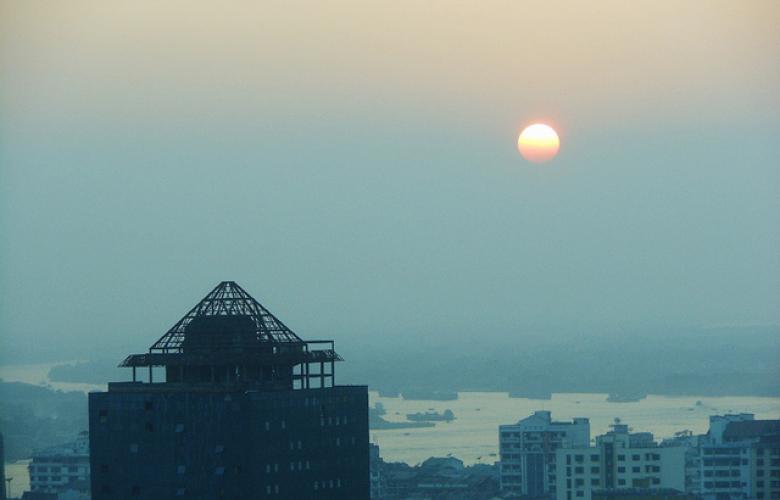The Yangon City Development Committee (YCDC) announced completion of its review of high-rise building projects on November 7 2016 and has begun accepting new applications for construction permits.
Kicking off in May 2016, the Yangon Regional government and YCDC together undertook a review of high-rise buildings across the city. Analyst Joshua De Las Alas of Colliers International describes the undertaking as “an initiative to impose stricter implementation on non-compliant projects”. The scope of the review extended to projects under construction; those that had begun foundation work; and those still in planning stage.
A review of this final group of developments – planned projects which had been granted a permit-in-principle by the previous YCDC administration, but had not yet begun construction – is now complete and the YCDC’s Department of Engineering (Building) has resumed accepting developers’ applications for construction projects. Submission of new applications had been previously halted in July while the review was ongoing. Says De Las Alas, “The shake-up drove developers and investors to adopt a holding pattern; the temporary cease in new applications along with weakened investor confidence has resulted into a decline in project launches - especially evident with the already challenged residential condominium sector.”
One of the building projects to be reviewed was Shangri-La’s Sule Square office development in Yangon. The committee found that, though a design changed which added 2 storeys was submitted for YCDC approval, construction had already begun and the change did not receive formal approval. A sizeable K2 billion (US$1.5m) fine was issued to Shangri-La in hopes of deterring other developers from making similar changes after beginning works. The YCDC has now issued the building completion certificate, allowing the building to open for business.
De Las Alas is cautiously optimistic about the impact of the review. “With the building review now being recently concluded, the market should still see modest increase in new high-rise developments, at least in the near future. Developers are likely to remain relatively cautious until confidence is restored reinforced by a solid regulatory framework from the government,” he says. “Overall, the stricter implementation of the building regulations will drive general improvements especially on the merits of building safety as well as the quality of future projects going forward.”
However, on prices De Las Alas expects “virtually no impact” from the review. “Despite the lowering levels of sales take-up,” he says, “the high cost outlay for construction and the possibility of losing their reputation among existing customers have deterred most condominium developers from cutting selling prices. Most projects have already come under pressure to keep sales prices modest due to the amount of new supply launched in the market.”
Similar to this
Mandalay enforces new landlord licensing system
Yangon's serviced apartment boom
Myanmar 'Condo Law' allows foreigners 40% ownership









